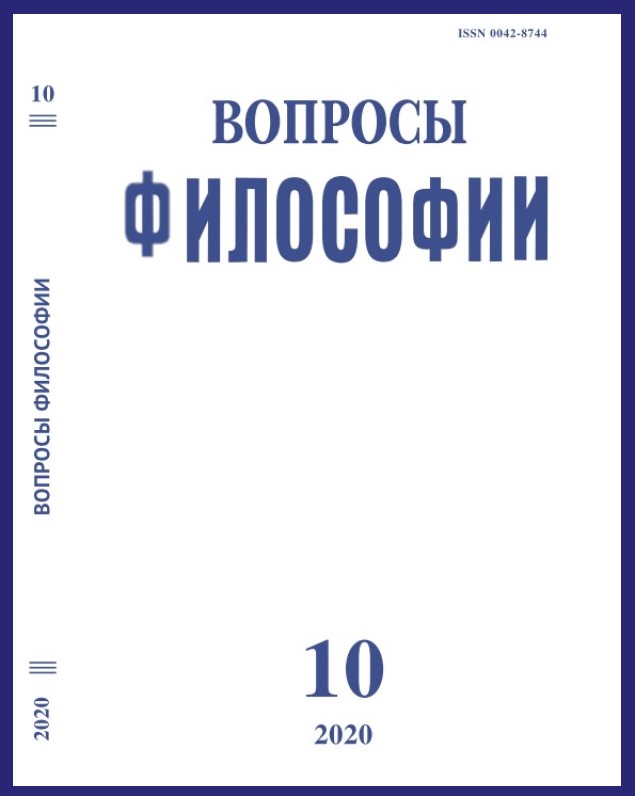About One New Approach to Kant’s Philosophy of Religion
DOI:
https://doi.org/10.21146/0042-8744-2020-10-170-180Keywords:
Kant, Palmquist, philosophy of religion, synthesis, hierarchical unity, religion, theology, ethico-theology, morality, reductionism, postulate of reason, grace, good worksAbstract
The subject of the paper is the altered viewpoint upon Kant’s philosophy of religion in its relations with his transcendental ethics on one side and with the revelation-based theology on the other, as suggested by some contemporary Kantian scholars, and exemplified by some articles of St.R. Palmquist. His «perspectival» interpretation of Kant’s theory of moral religion, which the author thinks possible to understand as an authentic groundwork for a Christian philosophy, opens new outlooks for the analysis of Kants philosophical treatise on religion in general, for the comprehension of the ratio between transcendental philosophy and criticism of positive religion in it, and seeks to rethink the priorities in the relation between Kantian ethico-theology and historical Christianity. And yet it is exactly here, after the revision of the relationship between morality, theology and religious practice within the Kantian philosophical system, that the content of the second moment in this relationship, i.e. the essence of ethico-theology, becomes crucial, as far as it can prevent a reduction of religion to morality only in case it adopts a concept of the hierarchy of aspects in religious life which is in concord with the viewpoint of theology. An important discovery of this new perspective upon the Kantian theory of religion is that there is no religious content on the level of postulates, or that it can be conceptualized here only in the mode of potentiality. The pure moral disposition, the “religion of practical reason” is not so much the truth of a religious standpoint, as its transcendental “framework”. On the case of Kantian theory of grace we show that the most acute problems for the traditional as well as for the affirmative approach to Kantian religion arise primarily on the borderline between philosophy and theology, on the site of the “conflict of the faculties”

